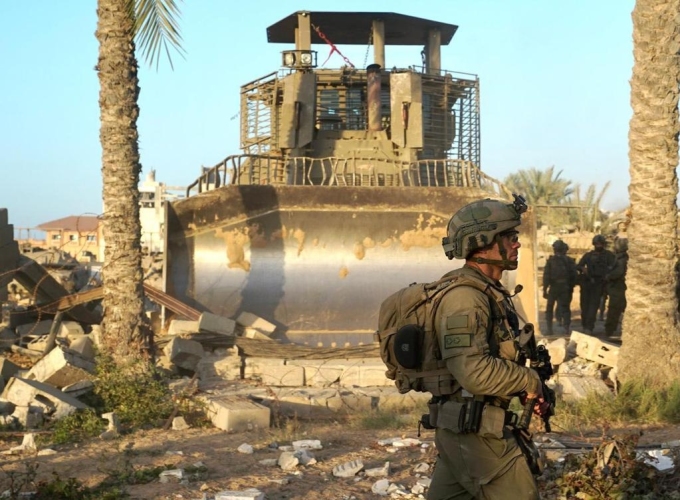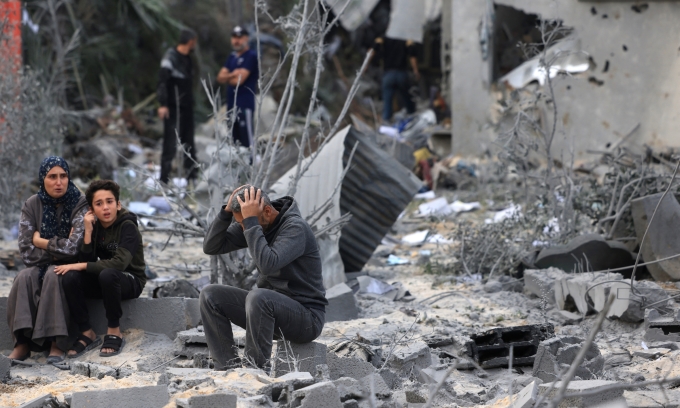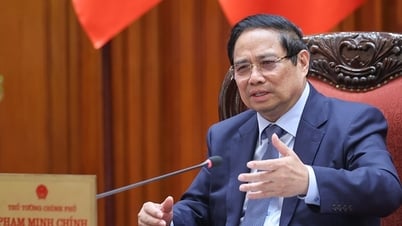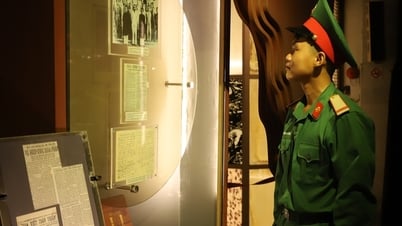The US and Israel are trying to find a capable and reputable partner to take over the Gaza Strip after the war, but all options are risky.
US Secretary of State Antony Blinken, during his visit to Israel and the West Bank last week, focused on discussing the options for establishing a post-war administration in the Gaza Strip. When launching the offensive, Israel, a close US ally, declared that Hamas would no longer be able to govern the Gaza Strip, but never gave a clear plan for who would replace Hamas.
Despite being determined to "destroy" Hamas, Israel has no interest in managing this land with more than 2 million people. Israel deployed forces to occupy the Gaza Strip for 38 years after the 1967 war, but suffered many losses due to the Palestinian resistance movement and was forced to withdraw, paving the way for Hamas to control the land.
Israel's reluctance to take over Gaza leaves the US facing many challenges in finding a partner capable of handling the complex issues in this land, ensuring that the spiral of conflict will not repeat itself and that the crisis will not spread throughout the Middle East.

Israeli soldiers in action in the northern Gaza Strip on November 11. Photo: IDF
Washington is prioritizing the transfer of control of the Gaza Strip to the Palestinian Authority after Hamas is defeated by Israel. US diplomats expect the West Bank government of President Mahmoud Abbas to be the main partner in the reconstruction of the Gaza Strip, with the long-term goal of the land being part of a Palestinian state if the "two-state" solution is successful.
However, this will be a huge challenge for Mr. Abbas's government and the Fatah movement he leads. Fatah once controlled the Gaza Strip, but had to withdraw from this land 16 years ago, when Hamas rose and received widespread support from the people here thanks to its hard-line policy towards Israel.
Since then, President Abbas's Palestinian Authority has only had a presence in the West Bank. However, the "divide and rule" strategy applied by Israeli Prime Minister Benjamin Netanyahu for many years has caused the Palestinian Authority in the West Bank to lose its position and influence.
Before the Hamas attack on October 7, the US and its allies also urged Arab countries to put aside the Palestine issue to promote an agreement to normalize relations with Israel, causing the Palestinian Authority to be almost pushed aside in the Middle East geopolitical picture.
The current West Bank administration is also said to be less invested in public services and people’s lives than it was in the 2007-2013 period when Salam Fayyad, a former International Monetary Fund (IMF) official, headed the cabinet. Security forces in the West Bank also have to meet some cooperation requirements from the Israeli military under peace process agreements.
Meanwhile, after 16 years in power in the Gaza Strip, Hamas and its allied groups have "deeply rooted" in almost every social, political and security aspect of the land.
Hamas's political wing runs the local administration. Its armed wing is not only involved in military operations but also in security and police duties. Israel also accuses Hamas of infiltrating Gaza's religious, charitable, educational, health, charitable and youth institutions.
Most Palestinians have tended to support Hamas over the years, feeling that the organization has achieved tangible results in its struggle with Israel. Tel Aviv has recently had to meet many demands for the release of Palestinian prisoners and the opening of aid to the Gaza Strip in agreements with Hamas, the most recent of which was a week-long ceasefire in exchange for the release of more than 100 hostages.
"The Palestinian Authority is facing many doubts about its governance capacity and does not enjoy the support of the majority of people in Gaza," said Shawqi Issa, a West Bank human rights activist and former cabinet member in 2014-2015.
According to Dennis Ross, an expert at the Washington Institute for Near East Policy and a former adviser to the US administrations on Israel-Palestine negotiations, the Abbas administration would not want to be associated with the image of "Israeli tank-riding" forces entering the Gaza Strip. The Palestinian Authority is therefore probably trying to tie the issue of a "comprehensive solution" for the West Bank into the agreement to take over the Gaza Strip.
The remaining option for Israel and the United States regarding the future of Gaza is to invite Arab countries to lead the reconstruction program and maintain order in the land .
According to Dennis Ross, although Israel does not want to re-occupy the Gaza Strip, they still need the power transition process here to be overseen by a partner capable of maintaining peace and stability, "allowing for the demilitarization of the area and creating a mechanism to ensure this place does not rearm".
Former Israeli Prime Minister Ehud Olmert has suggested that the NATO military alliance should send a mission to the Gaza Strip to monitor the situation, while some diplomats have raised the possibility of the United Nations sending a peacekeeping force to the region.
Neither option is feasible. NATO would be seen as a Western military intervention in the Middle East, and Tel Aviv feels that the United Nations has failed to acknowledge its legitimate security concerns in recent months. UN agencies in Gaza have also failed to persuade Hamas to choose a peaceful course of action in recent years.

People sit amid the rubble of a house hit by an Israeli airstrike in Khan Yunis, southern Gaza Strip, on November 22. Photo: AFP
The Wall Street Journal last week quoted US officials as saying that the Israeli military is proposing the creation of a “Gaza Reconstruction Authority” backed by Saudi Arabia and the United Arab Emirates (UAE). Communication between Israel and Arab countries has improved significantly thanks to the normalization of relations in recent years.
But Arab states in the region are also reluctant to send troops to Gaza, fearing they will be seen as a new occupying force in Gaza. If armed groups rise up or civil unrest in Gaza escalates, the garrison could resort to force and confront Palestinians, said Ghaith al-Omari, a senior fellow at the Washington Institute for Near East Policy.
Egyptian Foreign Minister Sameh Shoukry stressed during a meeting with Arab diplomats last week that Egypt did not want to be a “cleaner” in Gaza, explaining that any foreign force entering the Gaza Strip, whether Arab or Western, risked being “viewed as an enemy.”
According to experts, the administration of US President Joe Biden and its ally Israel may have to combine both options at the same time to answer the question of who will manage the Gaza Strip after the war.
The US needs to support the Palestinian Authority strongly enough, even paving the way for the establishment of a Palestinian state with full authority and defined borders. Such commitments are enough to convince Arab countries to participate in the complex and risky post-war transition of power.
During a visit to the West Bank last week, Secretary of State Blinken met with President Abbas and affirmed that the US wants to support the Palestinian Authority in implementing a number of reform programs to "effectively meet the needs of the people", promote anti-corruption and social development.
According to experts, Washington also seems to be sending a message of support for Mr. Abbas to stay in power. US officials are concerned that Hamas could win if elections are held at this time and the West Bank government needs time to consolidate its reputation. Secretary of State Blinken agrees that Palestinians cannot rush to hold general elections but need "a post-conflict process."
"The Arab countries need a suitable context to enter. They need a two-state solution and a transfer of power to the Palestinian Authority. Through this way, they can continue to claim that the Arab world is helping the Palestinian people," Ghaith al-Omari analyzed.
This process will certainly face many difficulties and challenges, but the US seems determined to pursue it.
"We have no illusions. We know that the process of forming a new government will not be easy and will be fraught with disagreements," Secretary of State Blinken said in Tel Aviv. "But if we don't do that, attacks and violence will resume and civilians will suffer again."
Thanh Danh (According to Washington Post, CBC )
Source link




































































































Comment (0)